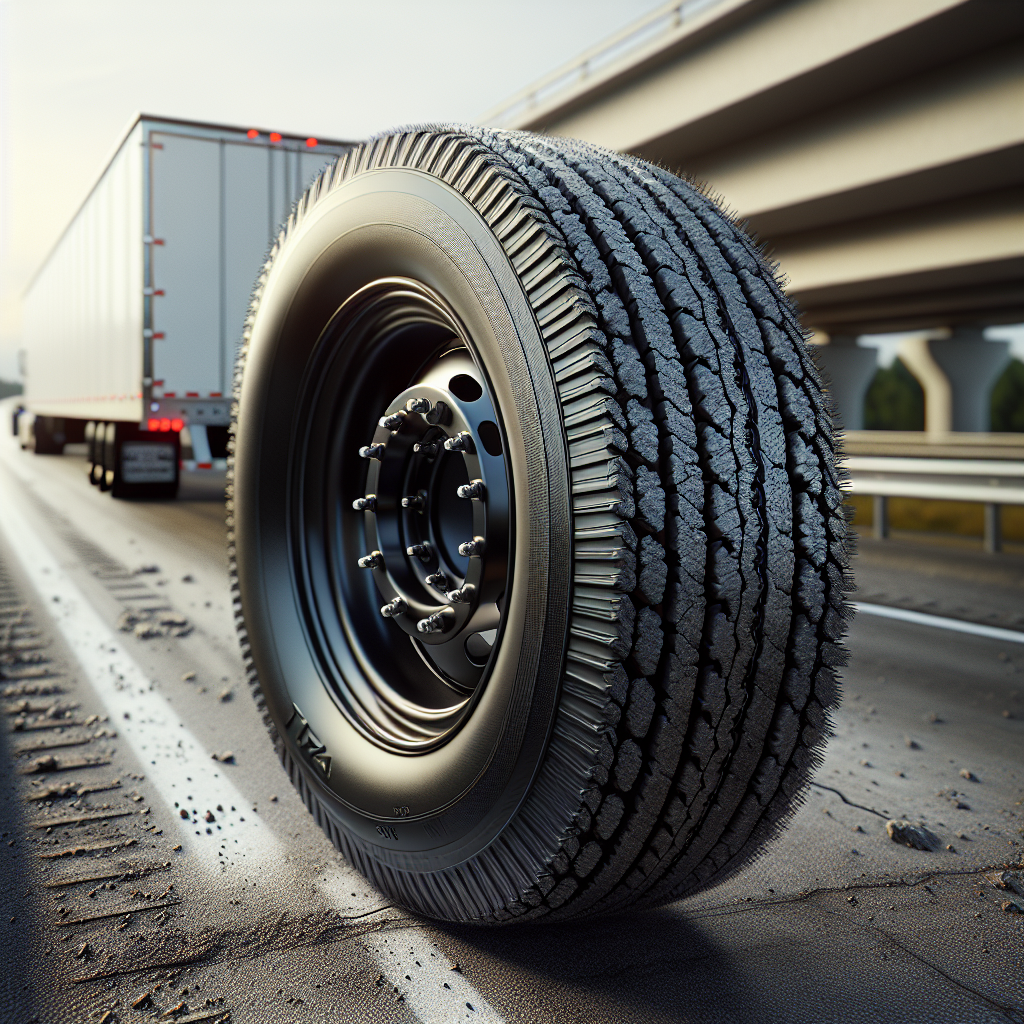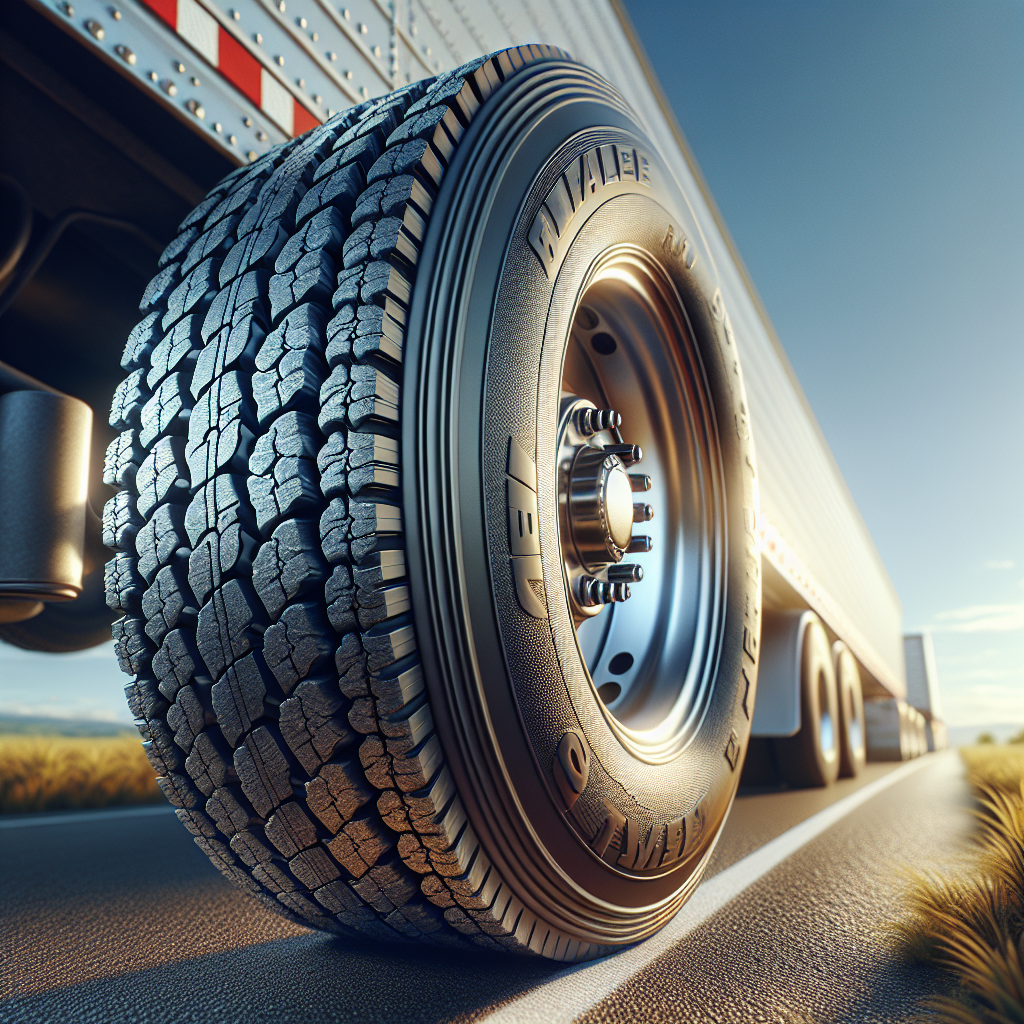Ensuring that your trailer tires are in optimal condition is critical for both safety and performance on the road. Tires serve as the sole point of contact between your trailer and the road, making their condition vital for a smooth and secure towing experience. When considering how to tell if trailer tires are good, it’s essential to recognize the risks associated with poor tire maintenance.
Worn or damaged tires can lead to a range of issues, including:
- Blowouts: A tire that is not properly maintained may burst, causing loss of control.
- Poor handling: Tires that are worn unevenly can impact the maneuverability of your trailer.
- Increased fuel consumption: Improperly inflated or damaged tires can cause your vehicle to work harder, leading to higher fuel costs.
- Reduced lifespan of the trailer: Poor tire condition can lead to additional strain on the trailer's axles and suspension system.
Regularly inspecting your trailer tires for signs of wear, such as cracks, bulges, and tread depth, is essential for preventing catastrophic failures. Furthermore, monitoring tire pressure can significantly enhance tire longevity and performance.
Tow with peace of mind, knowing that TrailerWatchdog is standing guard. By utilizing advanced monitoring systems, you can keep track of tire conditions proactively, ensuring safe travels every time.
Key Signs of Worn or Damaged Trailer Tires

Identifying the signs of worn or damaged trailer tires is crucial for maintaining safety and performance. Regular inspections can help you detect problems before they escalate into serious issues. Here are some key signs to look for when evaluating your trailer tires:
- Tread Wear: Check for uneven tread wear patterns, which can indicate misalignment or improper inflation. A tire with less than 2/32 of an inch of tread depth should be replaced immediately.
- Cracks and Cuts: Inspect the sidewalls and tread for visible cracks, cuts, or bulges. These can compromise the tire’s integrity and lead to blowouts.
- Flat Spots: If a tire has been sitting in one position for too long or has been overloaded, it may develop flat spots. This can affect handling and stability.
- Vibration or Noise: Unusual vibrations or noises while towing can indicate a problem with the tires, such as imbalance or internal damage.
- Age of Tires: Tires have a lifespan, typically around six to ten years, regardless of tread wear. Always check the manufacturing date on the sidewall.
By keeping an eye out for these indicators, you can ensure that your trailer tires remain in good condition, significantly reducing the risk of accidents or breakdowns on the road.
How to Check Trailer Tire Tread Depth Effectively

Understanding how to check trailer tire tread depth effectively is essential for ensuring safe towing. Tread depth affects traction, handling, and the overall performance of your trailer. Here’s a simple method to assess the tread depth of your trailer tires:
- Use a Tread Depth Gauge: The most accurate way to measure tread depth is by using a tread depth gauge, which can be purchased at any auto parts store. Simply insert the gauge into the deepest groove of the tire tread and read the measurement.
- The Penny Test: If you don’t have a gauge, you can use a penny for a quick check. Insert a penny into the tread with Lincoln’s head facing down. If you can see the top of his head, it’s time to replace your tires.
- Check Multiple Locations: Tread wear can be uneven, so it’s crucial to check several spots around the tire. Make sure to inspect both the inside and outside edges of the tread.
- Look for Wear Indicators: Many tires come with built-in wear indicators, which are small bars that run across the tread. When the tread wears down to the level of these bars, it’s a sign that the tire needs replacing.
Regularly checking your trailer tire tread depth can help you maintain optimal safety and performance on the road. A well-maintained tire not only improves handling but also enhances fuel efficiency, making it a win-win situation for any trailer owner.
The Role of Tire Pressure in Trailer Safety

Maintaining proper tire pressure is a critical aspect of trailer safety that should never be overlooked. The role of tire pressure in trailer safety extends beyond just ensuring a smooth ride; it directly impacts vehicle handling, fuel efficiency, and tire longevity.
Optimal Performance: Tires that are inflated to the correct pressure provide better traction, which is essential for safe towing. Under-inflated tires can lead to increased rolling resistance, causing the trailer to sway and making it harder to control, especially during turns or in adverse weather conditions.
Preventing Blowouts: Over-inflated tires are equally dangerous. They can cause the tire to wear unevenly and increase the risk of blowouts. Regularly checking and maintaining the recommended tire pressure ensures that your trailer can withstand the rigors of the road.
Fuel Efficiency: Proper tire pressure also plays a significant role in fuel efficiency. Under-inflated tires can decrease your vehicle’s fuel economy, leading to higher operating costs. Keeping your tires properly inflated can help you save money at the pump while also reducing your carbon footprint.
How to Check Tire Pressure: Use a reliable tire pressure gauge to check the pressure when the tires are cold, as tire pressure can increase with heat from driving. Refer to the trailer manufacturer’s guidelines for the correct pressure levels.
By understanding the crucial role tire pressure plays in trailer safety, you can help ensure a safer towing experience and prolong the life of your tires.
Preventative Maintenance Tips for Trailer Tires
To ensure the longevity and safety of your trailer tires, implementing a routine of preventative maintenance is essential. Regular maintenance not only enhances performance but also helps avoid unexpected breakdowns on the road.
1. Regular Inspections: Conduct thorough visual inspections of your trailer tires at least once a month. Look for signs of uneven wear, cracks, bulges, or foreign objects lodged in the tread. Early detection can prevent more serious issues.
2. Tire Rotation: Just like your vehicle’s tires, rotating your trailer tires can promote even wear. This is particularly important if your trailer is often loaded unevenly. Aim to rotate your tires every 5,000 miles or according to the manufacturer’s recommendations.
3. Proper Inflation: Maintain the correct tire pressure as previously discussed. Check tire pressure regularly, especially before long trips, and adjust as necessary. Remember that tire pressure can change with temperature fluctuations.
4. Cleanliness Matters: Keep your tires clean and free from debris, as dirt and grime can lead to corrosion on the rims. Use a mild soap and water solution to clean the tires, but avoid harsh chemicals that can damage the rubber.
5. Store Correctly: When not in use, store your trailer in a cool, dry place away from direct sunlight. If possible, elevate the trailer off the ground to relieve pressure on the tires and prevent flat spots from forming.
By adhering to these preventative maintenance tips, you can significantly enhance the performance and safety of your trailer tires, making your towing experience more reliable and enjoyable.
When to Replace Your Trailer Tires for Optimal Safety

Understanding when to replace your trailer tires is crucial for maintaining optimal safety on the road. Tires are the only contact point between the trailer and the ground, making their condition vital for safe towing.
1. Tread Depth: One of the most important indicators of tire health is tread depth. Use the penny test: insert a penny into the tread with Lincoln's head facing down. If you can see the entire head, it's time for a replacement. Generally, a tread depth of less than 2/32 of an inch is considered unsafe.
2. Age of the Tires: Even if the tread appears adequate, age can affect tire integrity. Most manufacturers recommend replacing tires every 6 to 10 years regardless of tread wear. Check the tire's sidewall for the manufacturing date to ensure you are aware of its age.
3. Visible Damage: Inspect your tires regularly for signs of damage such as cracks, bulges, or punctures. If you notice any significant damage, it's best to replace the tire rather than risk a blowout while towing.
4. Vibration or Noise: Unusual vibrations or noise while towing can indicate tire issues. If you experience these symptoms, it’s essential to have your tires checked. This could signal that they are unevenly worn and may need replacement.
By keeping an eye on these factors, you can proactively replace your trailer tires and ensure a safer towing experience. Tow with peace of mind, knowing that trailerwatchdog is standing guard.








